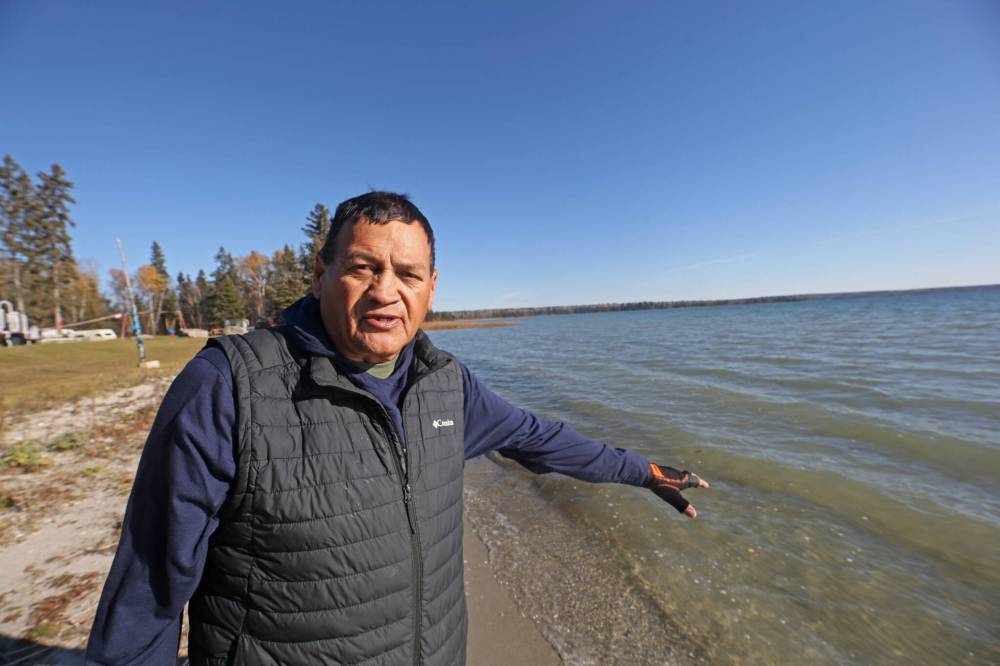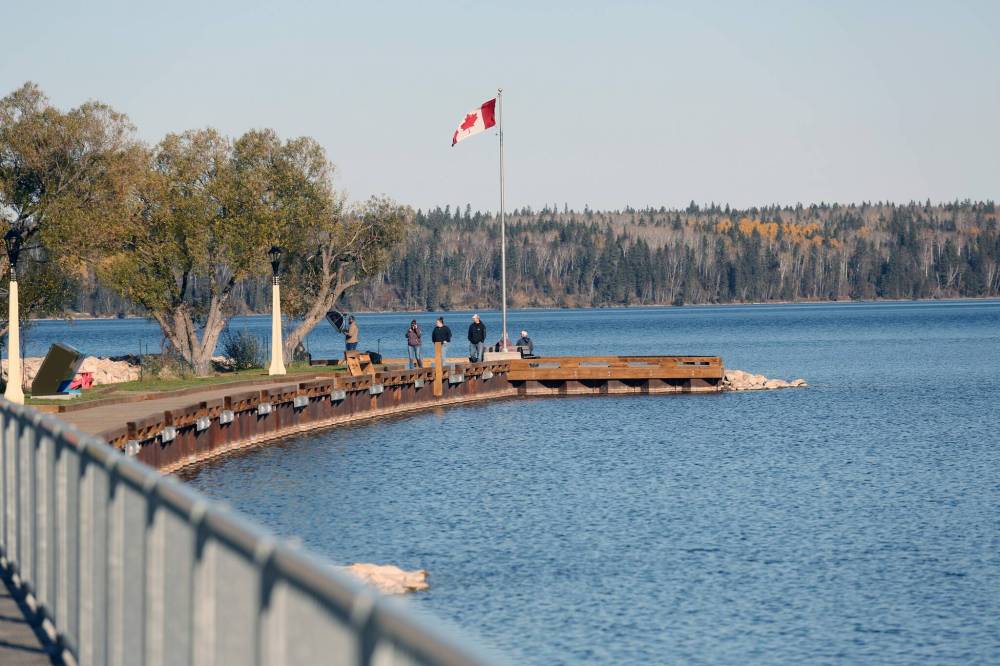Chief owns boat ban
Threat of legal action led to sudden policy reversal for Clear Lake in May
Advertisement
Read this article for free:
or
Already have an account? Log in here »
We need your support!
Local journalism needs your support!
As we navigate through unprecedented times, our journalists are working harder than ever to bring you the latest local updates to keep you safe and informed.
Now, more than ever, we need your support.
Starting at $15.99 plus taxes every four weeks you can access your Brandon Sun online and full access to all content as it appears on our website.
Subscribe Nowor call circulation directly at (204) 727-0527.
Your pledge helps to ensure we provide the news that matters most to your community!
To continue reading, please subscribe:
Add Brandon Sun access to your Free Press subscription for only an additional
$1 for the first 4 weeks*
*Your next subscription payment will increase by $1.00 and you will be charged $20.00 plus GST for four weeks. After four weeks, your payment will increase to $24.00 plus GST every four weeks.
Read unlimited articles for free today:
or
Already have an account? Log in here »
CLEAR LAKE — The chief of a western Manitoba First Nation is taking responsibility for the boat ban at Clear Lake, saying he threatened Parks Canada with legal action if motorboats were allowed back this year.
Chief Dwayne Sonny Blackbird of Keeseekoowenin Ojibway First Nation told the Sun Friday that he called an official at Riding Mountain National Park last spring and threatened to take action if boats were reintroduced.
The action came from his deep interest in the health of the lake, he said.

Chief Dwayne Sonny Blackbird of Keeseekoowenin Ojibway First Nation has claimed responsibility for a legal threat that caused boats to be banned from Clear Lake this year. Blackbird said the action came from his deep interest in the health of the lake, which has served as a place of healing for his family for generations. (Connor McDowell/The Brandon Sun)
“It’s supposed to be protected for future generations,” Blackbird said. “And it doesn’t look like that. That’s why I’m here.”
The boat ban came shortly after his phone call, he said.
Parks Canada announced the boat ban at the beginning of the May long weekend after telling the public in January that boats would be allowed on the water again.
At the time, the agency said the reversal was intended to curb the spread of zebra mussels in the lake.
Parks Canada did not immediately comment on the chief’s claim when emailed on Friday. Management staff were unavailable in the agency’s administration office at Clear Lake when the Sun visited in the afternoon.
But a senior Parks Canada official told a crowd of about 600 people at a town hall in Wasagaming in July that a legal threat convinced the agency that its promise to reintroduce motorized boats on Clear Lake this season would not be viable.
Andrew Campbell, senior vice-president of operations for Parks Canada, said at the meeting that Canada was doing its “constitutional obligation to consult” with local stakeholders when an unnamed party threatened legal action.
Blackbird said he made the threat because he is inspired by a strong family history at the lake. The introduction of zebra mussels, and the failure to contain the invasive species, charged him to action, he said.
Until the chief is satisfied that there is a strong plan to manage zebra mussels, he will fight any effort to put motorboats back on the lake, he said.
“I want to protect my culture and my heritage,” he said. “I’m going to fight till I’m dead.”
Meanwhile, Keeseekoowenin was approved by a judge last week to participate as a respondent in an ongoing judicial review of the Clear Lake boat ban. It will defend the ban alongside the federal attorney general.
The judicial review was launched in June by a coalition of community groups called Fairness for Clear Lake. It includes the Clear Lake Cabin Owner’s Association, the Clear Lake Cottage Owner’s Association, the Clear Lake Country Destination Marketing Organization Inc., Collyer Construction, three numbered companies and Gary Buckley.
The group, which is the applicant in the case, is asking a judge to declare the boat ban invalid or unlawful.
As an active participant, the First Nation is positioned to submit arguments and evidence, and if the boat ban is overturned, Keeseekoowenin may be able to appeal the decision and escalate the court process, University of Manitoba law instructor Andrea Doyle told the Sun.
Blackbird said the First Nation plans to submit an affidavit in the near future.

Visitors enjoy the autumn weather at Clear Lake. The health of the lake should be the No. 1 concern of Parks Canada when it comes to zebra mussels, otherwise what's the point? (Connor McDowell/The Brandon Sun files)
Trevor Boquist, who represents the coalition that is seeking to get boats back on the water, could not be reached on Friday. But earlier in the week, he told the Sun that the group gave its support for Keeseekoowenin to join the judicial review.
“They petitioned the court to be added,” Boquist said. “We felt they should be added, given the situation. We were supportive of that.”
Keeseekoowenin applied to join the judicial review in September. Boquist said the motivation of the First Nation was still unknown.
“We aren’t sure what they are going to file,” Boquist said Monday.
While being a stakeholder with property at Clear Lake, Keeseekoowenin did not join as a member of the coalition. The First Nation wrote a letter of support for the previous boat ban in May 2024.
After forming to protest this year’s ban, Fairness for Clear Lake crowdfunded more than $115,000 and launched the judicial review. As of July, $35,000 had been spent to file the judicial review, contract a fisheries biologist and pay for public relations.
Blackbird said he has had a long history of unsatisfactory relationships with representatives of the national park, and he reached a breaking point this year.
The waves washed up on the shore under Blackbird’s feet at IR 61A, a plot of waterfront land deemed Keeseekoowenin’s in 1994. Blackbird said the area has long been used by his family as a place of healing.
Earlier in the morning, a tear streamed down his face as he related a long oral history of his lineage on the land, including that his grandfather lived there.
He said he has already found a zebra mussel on the shore this year.
» cmcdowell@brandonsun.com
